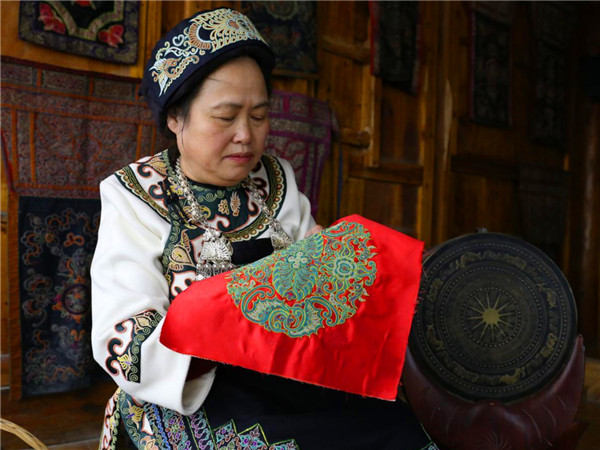Ethnic minority deputy dedicated to fighting poverty through embroidery
- By Guan Weiwei
 0 Comment(s)
0 Comment(s) Print
Print E-mail China.org.cn, March 5, 2019
E-mail China.org.cn, March 5, 2019
Song Shuixian, a deputy to the 13th National People's Congress (NPC), suggests better protection of Mawei (horse tail) embroidery, through which more Shui minority people can be lifted out of poverty.

Coming from the Shui ethnic minority in China's Guizhou Province herself, Song Shuixian started to learn Mawei embroidery at the age of six. She became a young master of the embroidery style by the age of 17. Since then, she has continued to make Mawei works for 36 years. In 2012, Song was given the title of "inheritor of Mawei embroidery," anitem of China's national intangible cultural heritage.
Mawei embroidery is a centuries-old craft unique to the Shui ethnic minority. The name "Mawei" means horse tail, which is the most important raw material Mawei embroidery uses.
"I love Mawei embroidery so much that it is an inseparable part of me," Song said. Song has collected tens of thousands of works of Mawei embroidery and taught thousands of Shui women the craft. To better protect the cultural heritage, she proposed the building of a museum dedicated to Mawei embroidery during the first session of the 13th NPC last year. Her request finally became a reality in Sandu Shui Autonomous County, Guizhou, early this year.
As the founder of the brand "Shuixian Mawei Embroidery," Song insists that it's not enough to just pass down Mawei embroidery. She must enrich it by making cultural products that feature the exotic skill. Under her guidance, thousands of Shui women have found a source of income in Mawei embroidery and escaped poverty.





